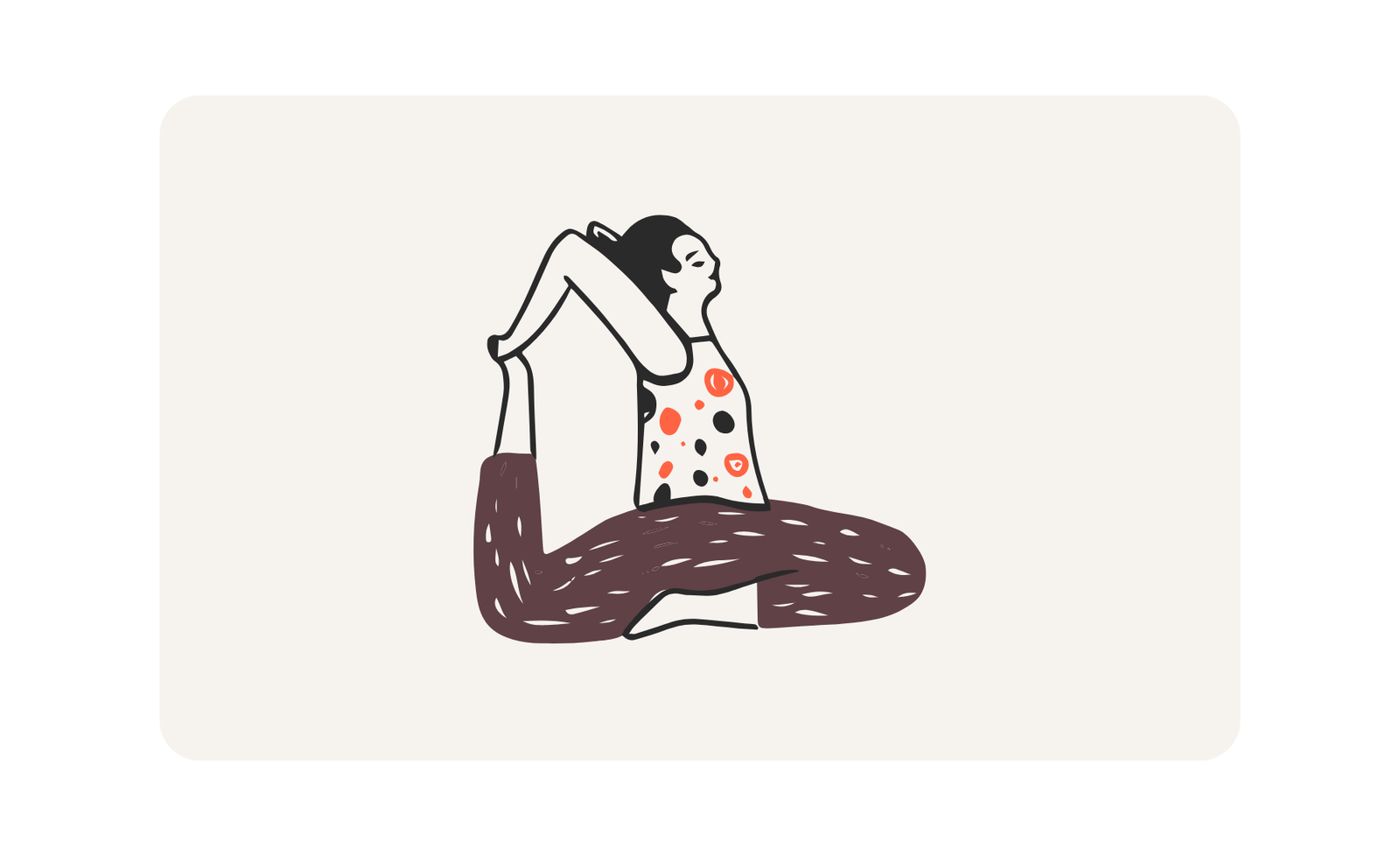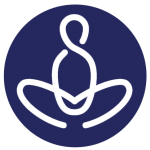Steven Murdoch

Why would jaw pain and hip tension be linked?
When people experience both jaw pain and hip tension, it’s often assumed the issues are unrelated.
When there is jaw pain and no obvious hip tension, the idea that the hips might somehow be involved can sound bizarre — even implausible.
And yet, in practice, it’s something many clinicians notice. People often report changes in their jaw when receiving manual therapy elsewhere in the body, particularly around the pelvis and hips.
So what’s going on?
There isn’t one single explanation. But there are a few well-established theories of how jaw pain and hip tension can be connected.
1. Connective tissue (fascia) continuity
Fascia is the connective tissue that supports and links every muscle fibre, nerve, blood vessel, organ, and joint in the body.
Rather than existing as separate parts, fascia forms continuous networks. These networks can be traced from the jaw, through the neck and trunk, and down into the pelvis and hips.
From this perspective, tension doesn’t stay neatly contained in one area. When the body is under long-term strain, load can be distributed across connected regions.
Some research supports this observation. Findings suggest that increased jaw tension is often linked with discomfort in other areas, including the hips, and that working with the jaw can sometimes lead to wider changes in how the body feels.
This doesn’t mean the jaw is causing hip pain, or vice versa. It suggests the body may be organising strain through shared connective tissue pathways, rather than isolated structures.
2. Nervous system and protective holding
The jaw and the pelvis are both common places where people unconsciously hold tension.
Clenching, gripping, or bracing are often part of the body’s protective response to stress, overload, or perceived threat. Over time, these patterns can become habitual.
The vagus nerve plays a role in regulating stress responses and links the jaw, throat, diaphragm, and pelvic floor. When the nervous system remains in a heightened state, tension may be maintained in more than one area at once.
In this sense, jaw tension and hip tension can reflect how the nervous system is responding, rather than a purely mechanical issue.
3. Whole-body stress and load
The jaw is often described as a place of emotional holding — clenching or grinding can be a physical expression of stress or frustration.
Similarly, the pelvis and hips are commonly associated with protection, stability, and holding.
From this viewpoint, jaw and hip tension aren’t separate problems, but different expressions of the same underlying load — physical, emotional, or both.
How my clinical work led me to reconsider the hip–jaw connection
I didn’t set out to specialise in jaw pain, but as my TMJ caseload grew, I began to notice a pattern.
Some clients improved steadily. Others didn’t respond as well as I expected.
My training was rooted in advanced clinical massage, with a strong emphasis on myofascial release and whole-body thinking. I believed I was taking a holistic approach — yet in practice, I was still focusing mainly on the jaw, neck, and shoulders.
That inconsistency in results suggested I wasn’t yet seeing the full picture.
Discovering a broader TMJ approach
That led me to deepen my study into TMJ massage, and it was difficult not to come across Helen Baker and her school, tmjmassagetherapies.com.
What stood out wasn’t just technique, but her emphasis on whole-body patterns, nervous system involvement, and lived experience of jaw pain.
Her approach aligned closely with my own values and helped me refine how I applied holistic principles in practice.
One key difference was placing greater emphasis on the hips earlier in treatment, rather than focusing almost exclusively on the jaw, neck, and shoulders.
Seeing the jaw–hip connection in practice
Because I see many clients with TMJ symptoms, I was able to integrate this broader approach quickly.
Previously, I would focus locally around the jaw, face, neck and shoulders, in the first session. Once I began addressing the hips more deliberately, the change was immediate.
Jaw tension softened more quickly. Movement improved. Outcomes became more consistent.
A real-world example
Jane (not her real name), my case study during training, had lived with jaw issues since childhood and was in her mid-sixties.
Her history included traumatic jaw realignment treatment, multiple whiplash injuries, postural changes, and longstanding clenching.
Although we’d already seen some improvement, she still felt her jaw was held back and her bite misaligned.
During a session that included focused work around the hips, Jane experienced clear softening in her jaw, neck, and shoulders. At one point, she noticed a release on the left side of her jaw while work was being done on her left glute medius. Later, during intraoral work to the lateral pterygoid (chewing muscle), she described a sense of pelvic opening.
A few days later, Jane told me she could open her mouth wider than three fingers for the first time ever. Walking felt easier. Chewing was more comfortable. Her jaw felt softer.
What this has changed in my work
This isn’t about the hips fixing the jaw.
It’s about recognising that physical and emotional strain can’t be neatly separated. The body holds, braces, and protects through connective tissue that is highly innervated — meaning the experience is both physical and sensory.
When treatment acknowledges these whole-body patterns, results tend to be more consistent and meaningful.
How to explore the hip–jaw connection at home
You don’t need to do anything complicated to begin exploring this idea for yourself. Often, it’s less about doing more and more about noticing how your body responds when tension is approached more broadly.
Two ways to explore this are light self-massage around the hips, followed by slow, supported stretching.
1. Self-myofascial (trigger point) release to the glutes
One simple place to start is the muscles around the hips and buttocks, particularly the gluteal muscles.
You can do this with a massage ball, tennis ball, or similar firm but forgiving object.
How to try it:
Lie on your back with knees bent, and place the ball under one side of your buttock
Slowly shift your weight over the ball until you find an area that feels tender, tight, or “full”
Stay there for 10–30 seconds, breathing slowly, without forcing or pressing hard
Notice whether anything changes elsewhere — including in your jaw, neck, or breathing
You’re not trying to chase pain or “release” anything. The aim is simply to notice how your body responds.
2. Yin yoga reclined pigeon pose (figure-four stretch)
After the trigger point release, some people find it helpful to follow with a slow, supported hip stretch.
Reclined pigeon — sometimes called a figure-four stretch — is a position often used in yin yoga. Yin yoga focuses on slow, passive stretching that targets connective tissue (fascia) rather than strong muscle effort.
The key is to work at the very beginning of the stretch, not the end range.
How to try it:
Lie on your back with knees bent, and both feet on the floor
Place one ankle over the opposite thigh, forming a loose “figure four” shape
If comfortable, gently draw the supporting leg in slightly — or keep it where it is
Stop well before you feel a strong stretch
Rest here for 1–2 minutes, breathing slowly
Use cushions or support if needed. The position should feel mild and sustainable, not effortful.
By staying near the start of the stretch, you allow the nervous system and connective tissue time to respond, rather than feeling pushed or forced. That’s why this may be a more sustainable release.
A note on expectations
These ideas aren’t treatments in themselves, and they won’t be appropriate for everyone. The aim isn’t to force change, but to observe how your body responds when strain is addressed more globally.
If jaw pain is persistent, complex, or worsening, personalised assessment and guidance are usually more helpful than self-care alone.
Key takeaways
- Jaw pain is rarely just a local jaw issue
- The hips and pelvis often play a role in how tension is organised
- Fascial tissue and the nervous system link physical and emotional experience
- Whole-body approaches can change outcomes, not by doing more — but by seeing more
Jaw knowledge and self-care resource
If you’d like to explore other knowledge-informed self-care ideas, I’ve created a separate educational resource called TMJ Pain Care. It’s a straightforward library of explanations and practical guidance, designed to be explored at your own pace.
